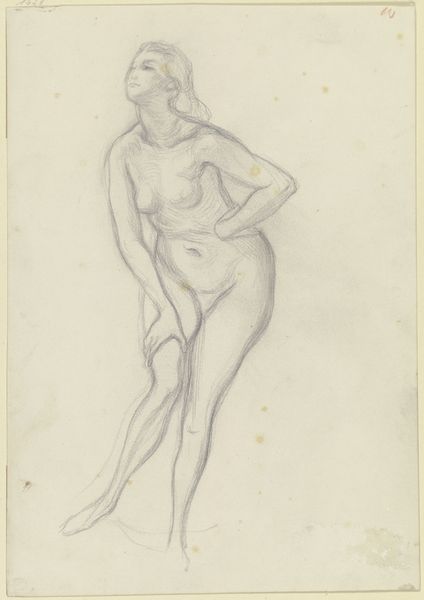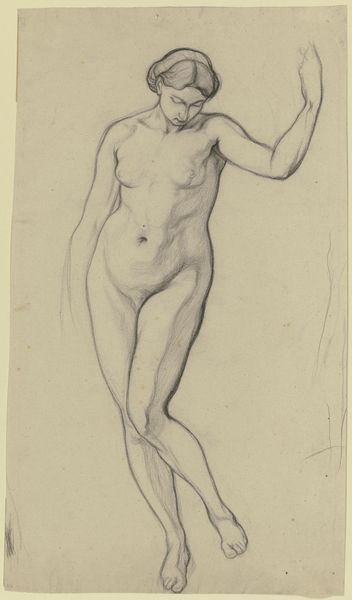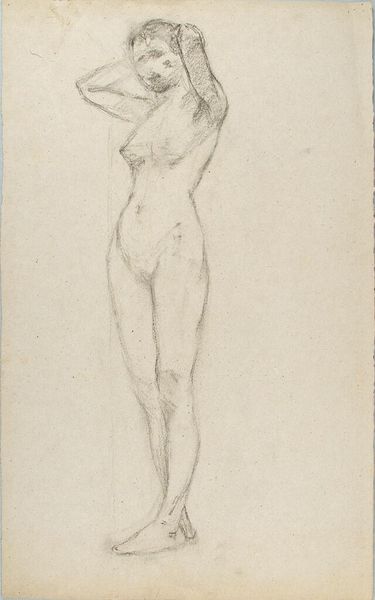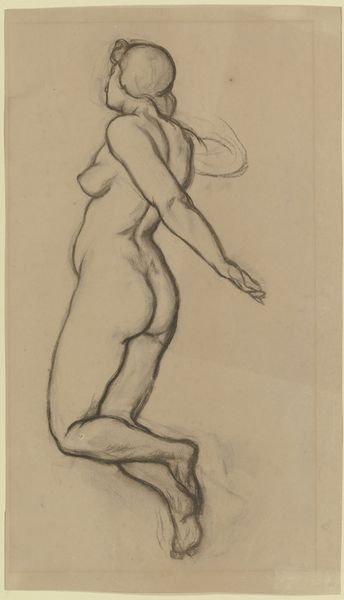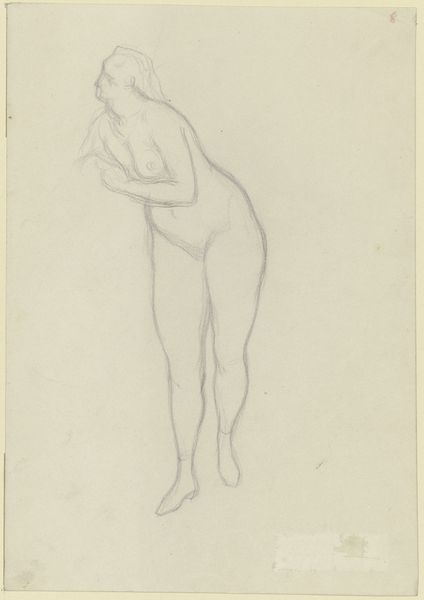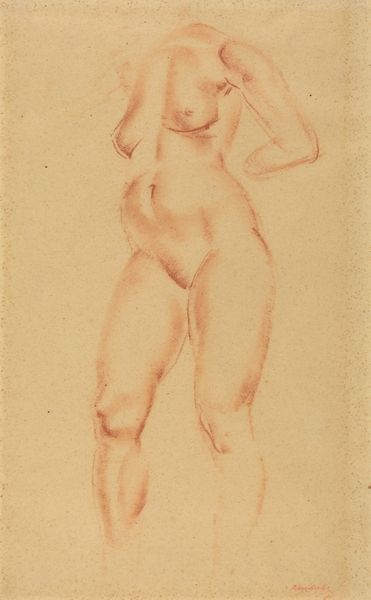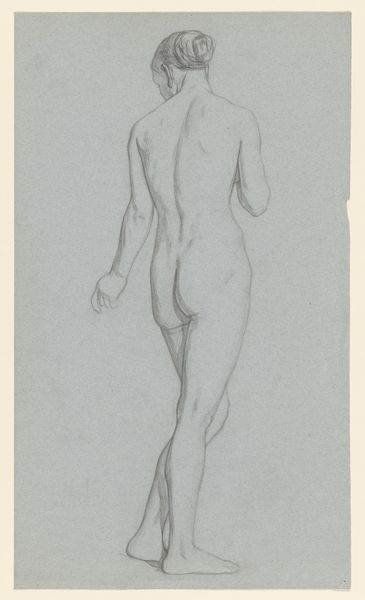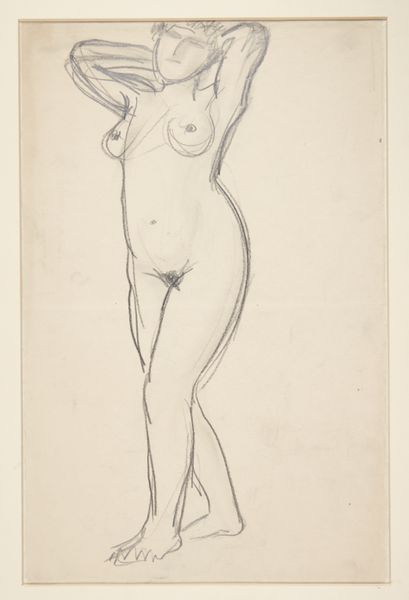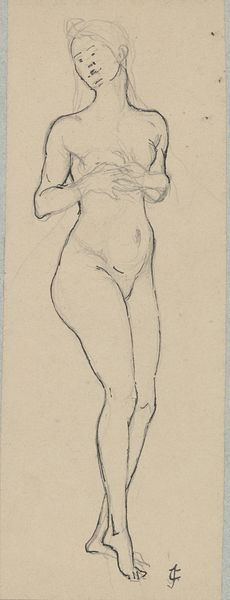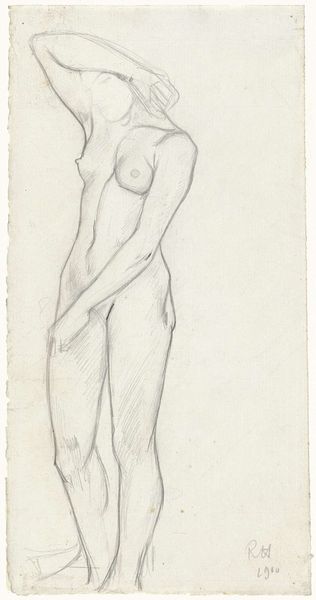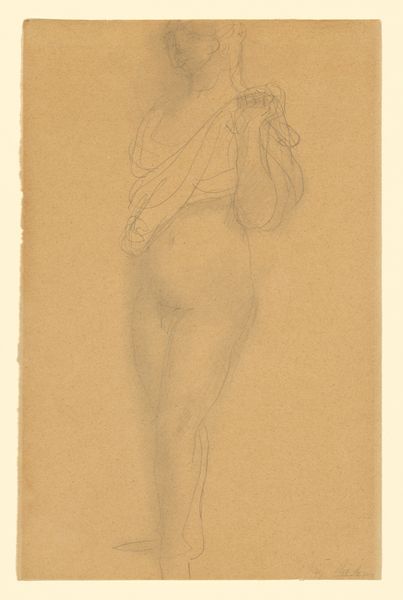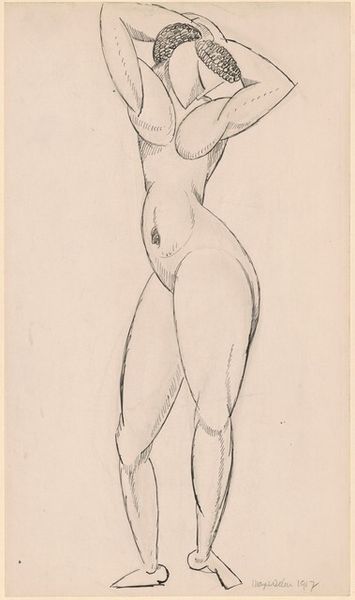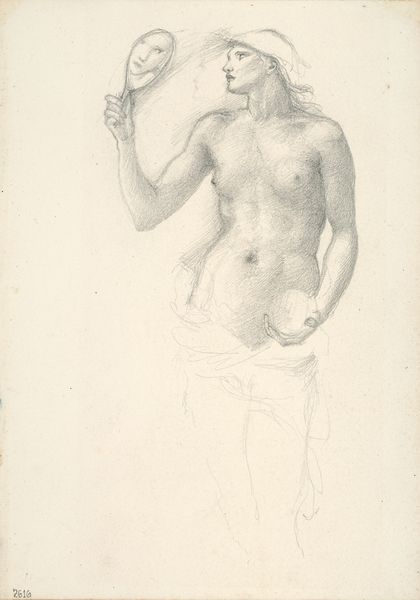
Nude Female Figure with Mirror in Right Hand c. 1873 - 1877
0:00
0:00
drawing, paper, pencil, graphite
#
portrait
#
drawing
#
paper
#
pencil drawing
#
pencil
#
symbolism
#
graphite
#
pre-raphaelites
#
nude
Dimensions: 253 × 178 mm
Copyright: Public Domain
Edward Burne-Jones made this pencil drawing of a nude female figure with a mirror in the late 19th century. This was a time of strict social codes and limited roles for women in Britain. Burne-Jones was associated with the Aesthetic movement. The pose is reminiscent of classical sculptures of Venus, the goddess of love and beauty. Yet the Pre-Raphaelite style in which it was drawn gives a very different impression. The Pre-Raphaelites were a group of artists who rejected the dominant academic style of art, which they saw as artificial and elitist. Instead, they looked to earlier periods of art for inspiration, before the Renaissance, when they believed art had been more sincere. As a social historian, I'm interested in the way the drawing engages with ideas about beauty, gender, and representation, and how it was received by the art world of its time. By consulting exhibition reviews and other documents, we can understand how Burne-Jones and his contemporaries challenged or reinforced the status quo.
Comments
No comments
Be the first to comment and join the conversation on the ultimate creative platform.
